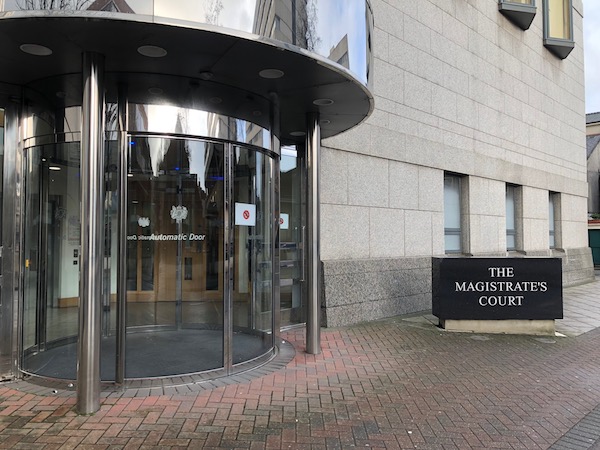

Moves are being made to allow island lawyers to enter into 'no win, no fee' agreements with their clients.
They come as part of a big overhaul of how islanders access the justice system and engage with lawyers and legal aid, which are being proposed by the Chief Minister this week.
The 'no win no fee' proposal is already commonplace in the UK, where it’s most frequently used in accident claims.
Under Senator Gorst’s plans, which will be put to a vote in the States Assembly on 10 April, lawyers will be able to enter into any kind of fee agreement dependent on a certain outcome – but only on the condition that they don’t charge them anything extra if they are successful.
He is also suggesting a change to how much public money is paid out in legal costs when a defendant is acquitted of a crime in the Magistrate’s, Youth or Royal Court.

Pictured: If approved, the proposals would also apply to the Magistrate's Court and Youth Court, as well as the Royal Court.
At present, the public purse pays the defending lawyer’s fees in full, which can vary depending on hours worked, seniority and complexity of the case if their client is later found not guilty or the Crown abandons their case.
However, the new proposals would instead see a “fixed price” paid out because it would apparently remove “budget volatility” and help provide “improved certainty in terms of budgeting and forecasts.”
The proposals do not address whether acquitted defendants will have to make up any remaining money owed after the “fixed price” is paid.
Advocate Olaf Blakeley expressed strong concerns over the possibility in a previous Connect column, writing: “If the Crown accuses you of a crime, presses ahead to prosecute you, turns your life upside down, puts you through the anxiety of a trial, but ultimately the allegations are not believed by the court/jury, then it can only be right your costs and expenses are refunded.
“From my perspective, I cannot see how any other outcome is just.”

Pictured: Advocate Olaf Blakeley previously expressed concerns that acquitted defendants might not be able to recoup their full legal costs.
One of the biggest reforms contained in the Chief Minister’s proposals is in relation to legal aid – services provided by those in the legal profession at their own expense to those who cannot afford a lawyer.
The previous system meant that legal aid was provided by lawyers qualified for less than 15 years on a rota-style system, which is believed to have cost local law firms between £7million and £9million annually.
New plans would see some of those costs publicly funded, with the establishment of a ‘Legal Aid Office’ to help those facing criminal charges under the daily supervision of the Law Society. It would feature a panel of specialist criminal lawyers, all of whom would be funded on a fixed fee basis. The old system in which firms provide services at their own expense would continue in operation for private law matters, such as family and personal injury cases.
The change is said to be largely cost-neutral, as it would involve using some of the funds normally allocated to court and case costs.
In a report outlining his draft ‘Access to Justice’ legislation, Senator Gorst explained that the moves would bring Jersey in line with the other British Isles, such as Guernsey who spent around £2million on legal aid in 2016 and the Isle of Man, whose schemes cost £2.7million in 2016/17.

Pictured: Senator Paul Routier, a key figure in the review process, said that the proposed new legal aid system would promote transparency and fairness.
Bringing forward the wide-ranging proposals has taken a number of years, beginning in 2014 when there were calls for the government to administer the legal aid system.
Commenting on the plans, Senator Paul Routier, said: “Introducing a new and modern Legal Aid system will address concerns expressed to the Access to Justice Advisory Panel regarding the current rota system when people are facing criminal charges. It will ensure that there is a specialist group of legal practitioners, overseen by the Judicial Greffe, available to support those with relative low incomes facing criminal charges.”
Senator Routier, who chaired the Access to Justice Advisory Panel, said that establishing a legal aid office would “improve transparency and perceived fairness in the administration of the Legal Aid system.”
President of the Law Society of Jersey, Advocate John Kelleher, added: “The legal profession remains committed to the safety net of free or reduced cost legal representation, available through the Legal Aid scheme, for the most vulnerable members of our community who might otherwise be deprived of access to justice. We are pleased to be working in partnership with the States of Jersey in the delivery of a revised Legal Aid scheme that is both sustainable and fit for the future.”
Comments
Comments on this story express the views of the commentator only, not Bailiwick Publishing. We are unable to guarantee the accuracy of any of those comments.